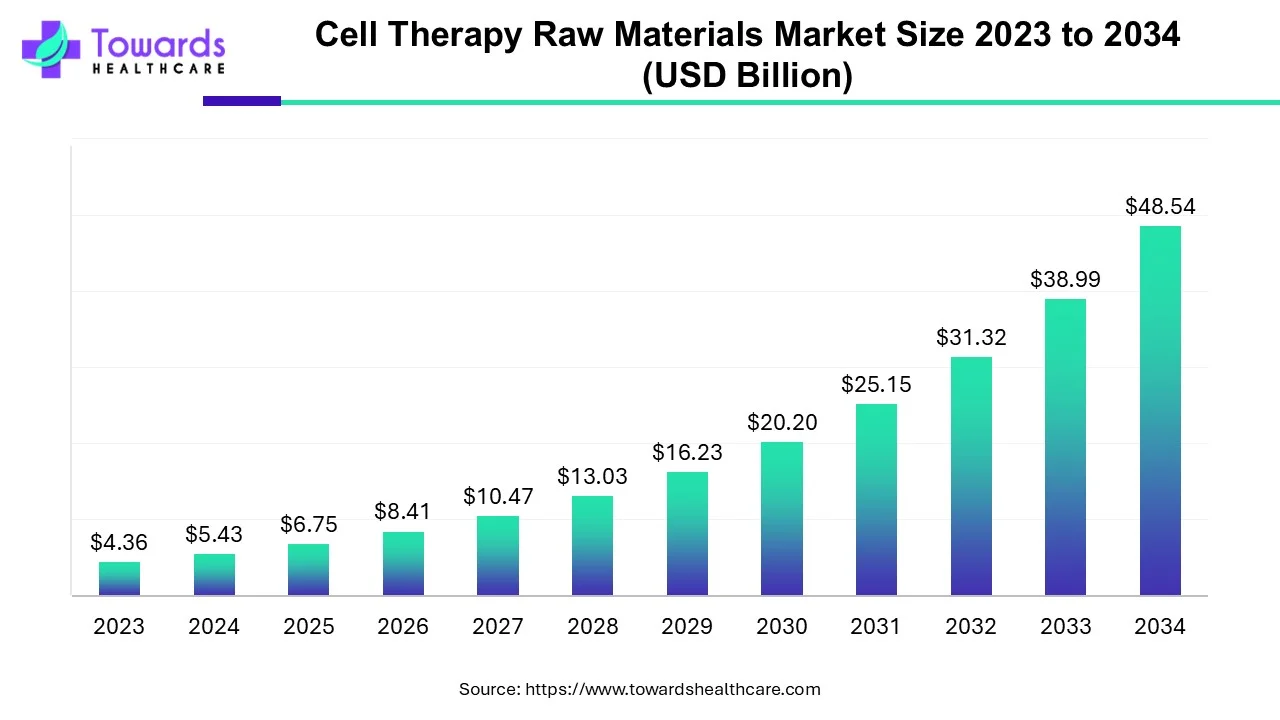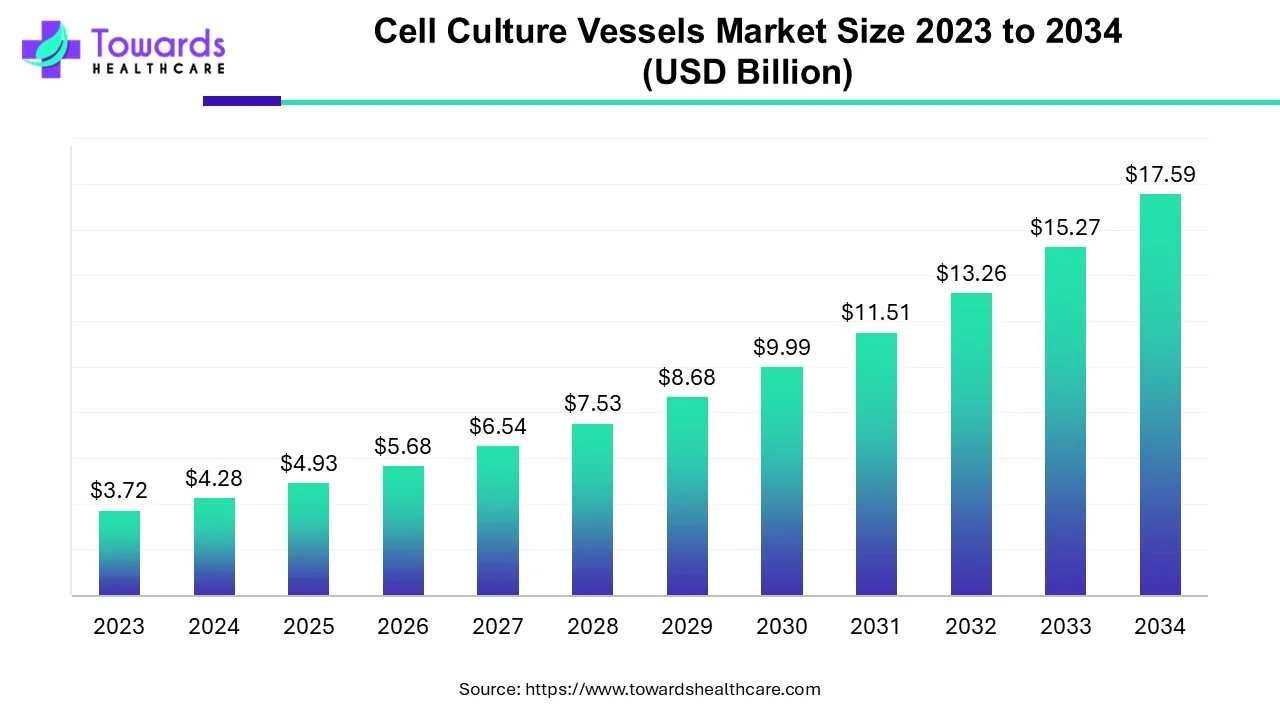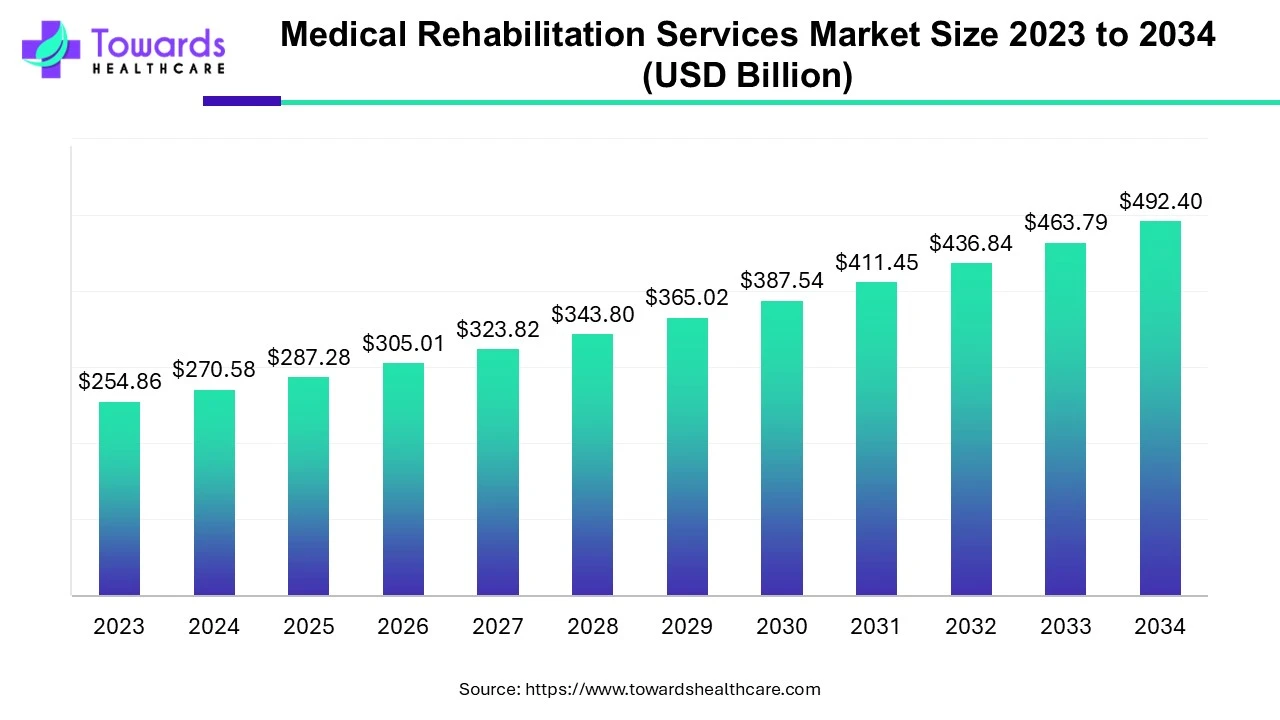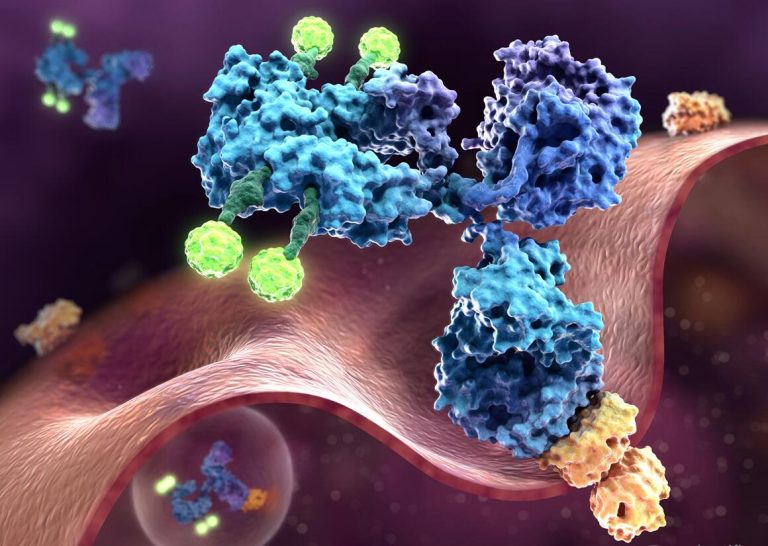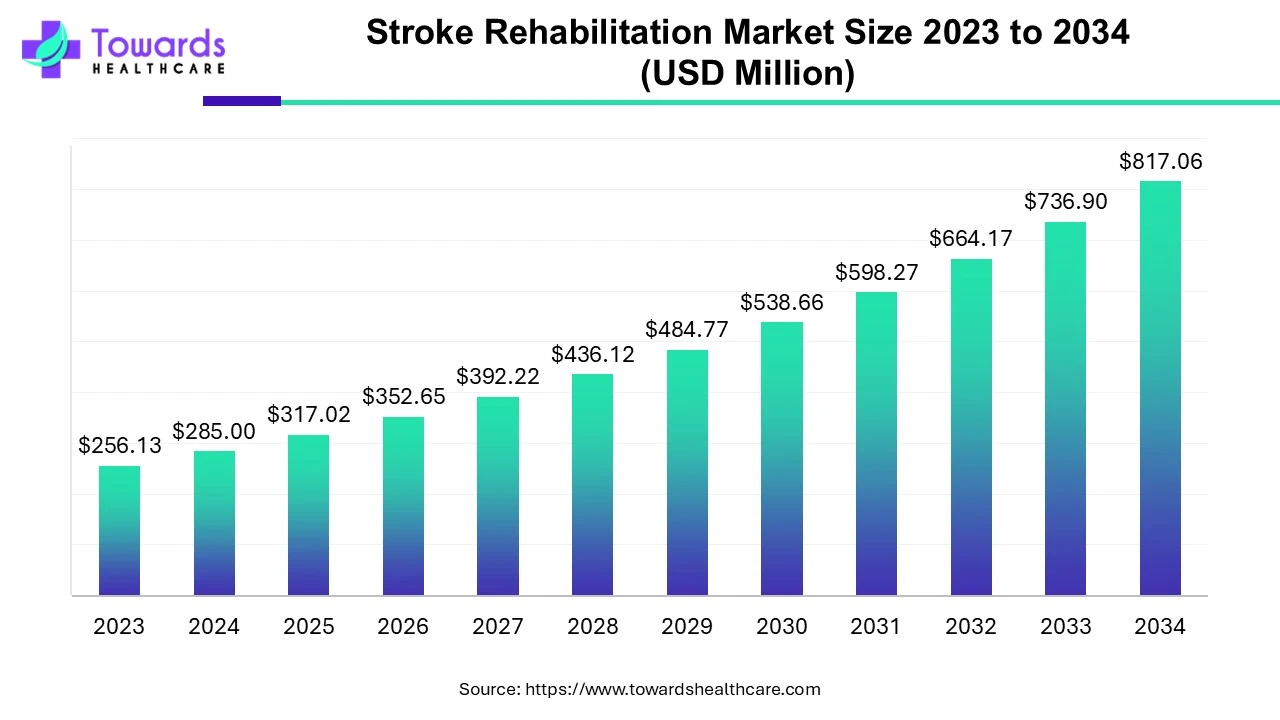Biosimilars Market Insights Leading Companies and Growth Projections (2023-2032)
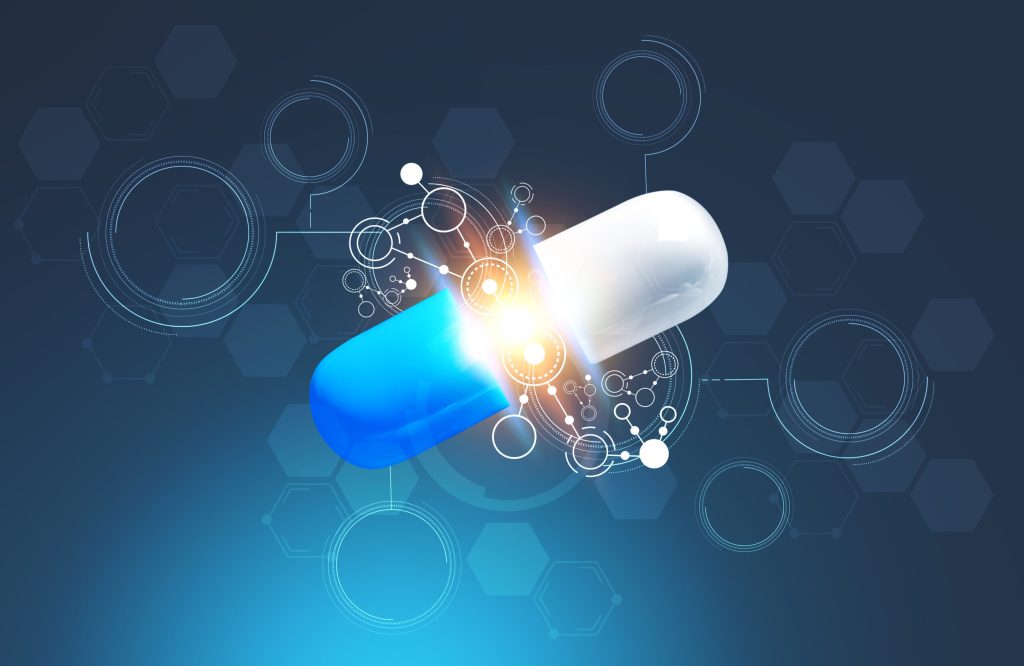
Blue and white pill inside immersive interface over light blue background with atomic grid. Concept of hi tech in medicine. 3d rendering toned image
Table of Contents
ToggleBiosimilars Market Overview Growth, Trends and Future Outlook (2023-2032)
The global biosimilars market is projected to expand significantly, with its value expected to rise from approximately USD 25.13 billion in 2022 to around USD 126.02 billion by 2032. This growth, driven by a robust compound annual growth rate (CAGR) of 17.6% from 2023 to 2032, is largely attributed to the increasing prevalence of cancer and the cost-effectiveness of biosimilar treatments. These factors make biosimilars an attractive alternative to expensive biologics, contributing to their rising adoption in healthcare systems worldwide.
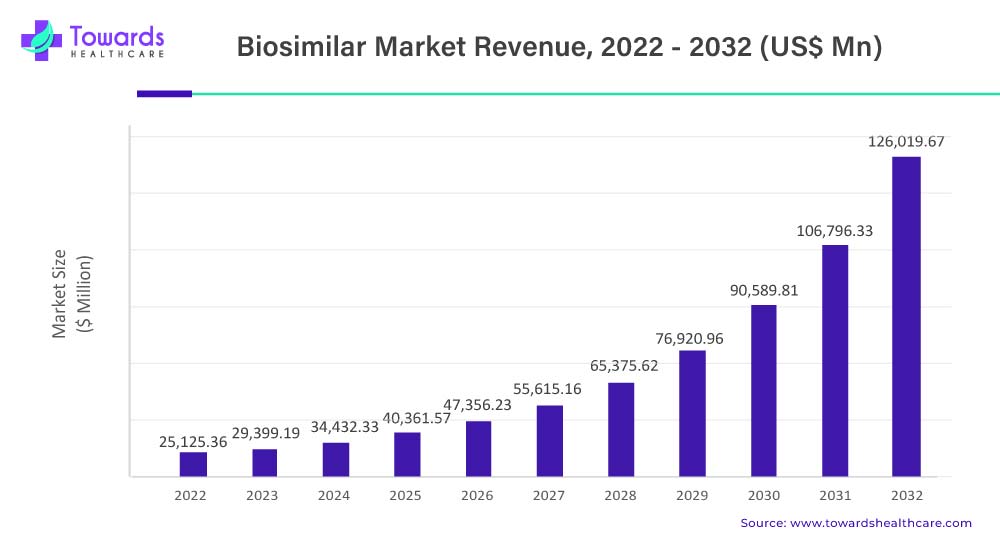
Download statistics of this report @ https://www.towardshealthcare.com/download-statistics/5035
The Promising Role of Biosimilars in Cancer Treatment
Biosimilars are quickly becoming a key solution in the fight against cancer, offering a more affordable and accessible alternative to expensive biologic drugs. Biologics, which are large and complex drugs derived from living cells, have been essential in cancer treatment. However, their high cost has created barriers to access, particularly in developing countries, limiting the number of patients who can benefit from these life-saving therapies.
Biosimilars, designed to closely resemble the original biologic drugs, provide a more cost-effective option while ensuring the same level of safety, efficacy, and quality. This makes them an attractive choice for cancer treatment, offering similar clinical outcomes to biologics at a fraction of the cost.
Several biosimilars have already been approved for cancer therapies, including those targeting monoclonal antibodies used in treating breast cancer, colorectal cancer, and non-Hodgkin’s lymphoma. Additionally, biosimilars of granulocyte colony-stimulating factor (G-CSF) are now available for managing neutropenia, a common side effect of chemotherapy. In fact, oncology-related biosimilars accounted for the largest market share of approximately 24.29% in 2022, and this sector is expected to continue its strong growth in the years to come.
Leading Companies in the Biosimilars Market
Several key players are driving the growth of the biosimilars market, each contributing their expertise and innovation to the development of affordable biologic alternatives:
- Novartis: A global healthcare leader, Novartis has made significant strides in the biosimilars space through its Sandoz division. The company focuses on providing high-quality, cost-effective biosimilars to enhance patient access to critical treatments.
- Synthon Pharmaceuticals, Inc.: Synthon is known for its development of biosimilars that target a range of diseases, including cancer. The company aims to make life-saving treatments more accessible by creating biosimilars that mirror the efficacy and safety of the originator products.
- Teva Pharmaceutical Industries Ltd.: Teva, one of the world’s largest generics and biosimilars companies, has a robust portfolio of biosimilars, particularly in oncology and autoimmune diseases. Teva’s commitment to affordability and innovation has positioned it as a key player in the biosimilars market.
- LG Life Sciences: A division of LG Corporation, LG Life Sciences has ventured into the biosimilars market with products targeting various therapeutic areas. With its emphasis on quality and safety, the company is expanding its presence in the biosimilars sector.
- Celltrion: Celltrion is a leading biopharmaceutical company based in South Korea, known for its focus on developing biosimilars for oncology, autoimmune diseases, and more. Their biosimilars are highly regarded for their safety, efficacy, and quality.
- Biocon: Based in India, Biocon is a major player in the global biosimilars market. The company has a strong pipeline of biosimilars targeting cancer, diabetes, and autoimmune disorders, aiming to provide affordable treatment options worldwide.
- Hospira: Now a part of Pfizer, Hospira was one of the pioneers in the biosimilars market, focusing on the development of biosimilars for cancer and autoimmune diseases. Its commitment to improving access to high-quality medications continues through Pfizer’s extensive global network.
- Merck Serono: A division of Merck KGaA, Darmstadt, Germany, Merck Serono has been at the forefront of biosimilar development, especially in the fields of oncology and immunology. Their biosimilars are designed to provide affordable alternatives to high-cost biologics.
- Biogen Idec, Inc.: Known for its focus on neurological and autoimmune diseases, Biogen has entered the biosimilars market with a strong commitment to providing high-quality biologic alternatives to improve patient access to vital therapies.
- Genentech: A leader in biotechnology, Genentech (a member of the Roche Group) has been instrumental in advancing biosimilar therapies, especially for oncology treatments. The company’s focus is on developing innovative biosimilars that provide effective, affordable treatment options for patients globally.
Our Table of Content (TOC) covers key healthcare market segments, materials, technologies and trends—helping you navigate market shifts and make informed decisions: https://www.towardshealthcare.com/table-of-content/biosimilars-market
Access exclusive insight now @ https://www.towardshealthcare.com/price/5035
We’ve prepared a service to support you. Please feel free to contact us at sales@towardshealthcare.com
Web: https://www.towardshealthcare.com
Visit Dental Specifics: https://www.towardsdental.com
Get the latest insights on industry segmentation with our Annual Membership: Get a Subscription
For Latest Update Follow Us: https://www.linkedin.com/company/towards-healthcare
